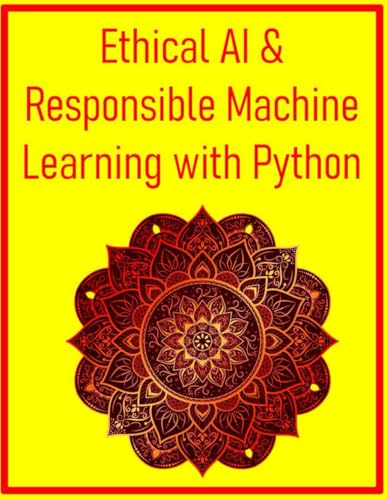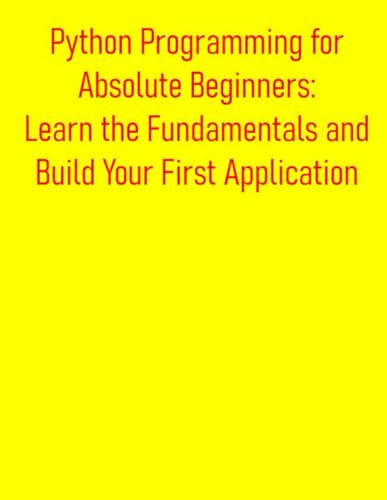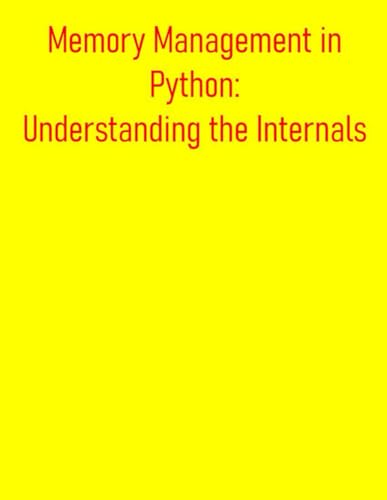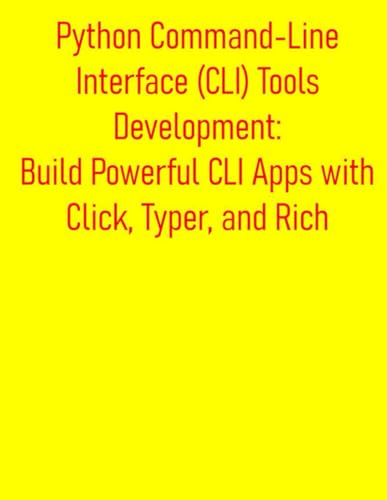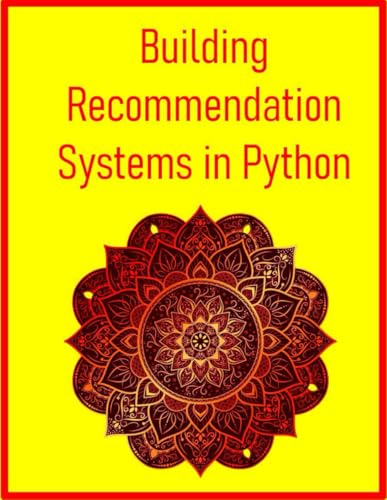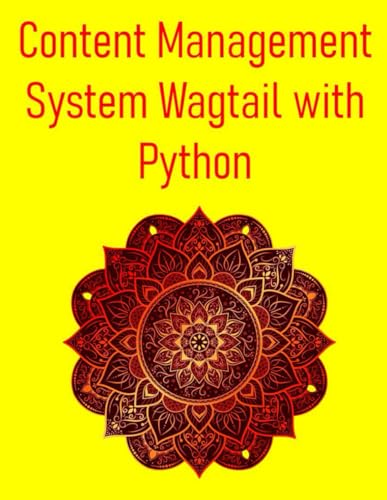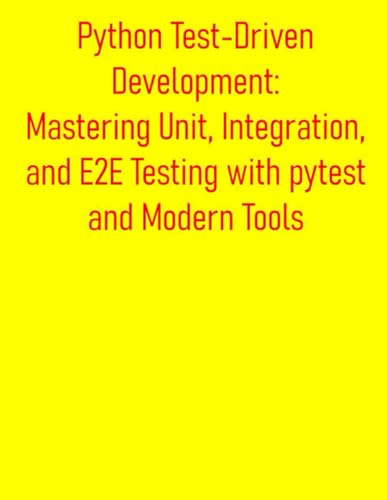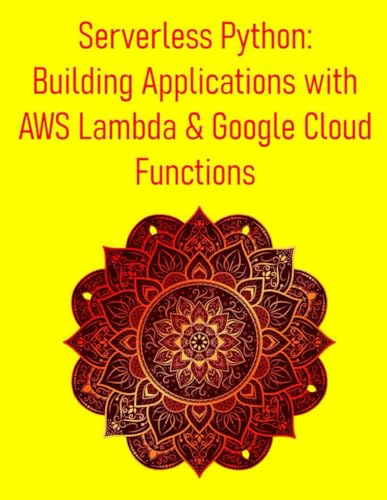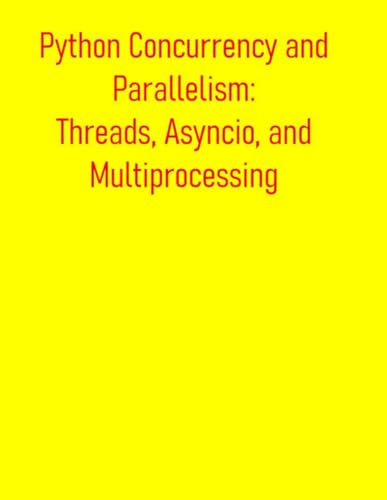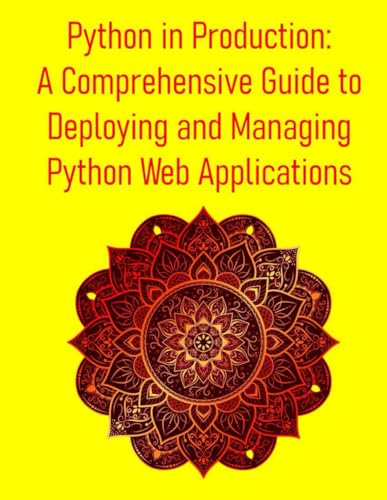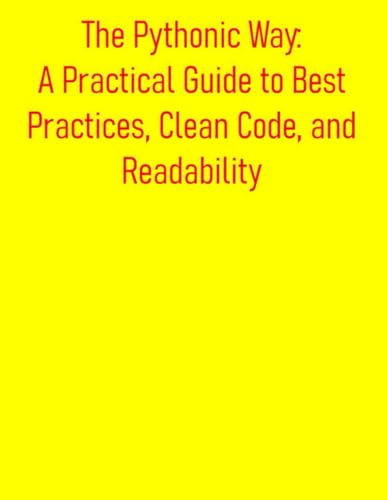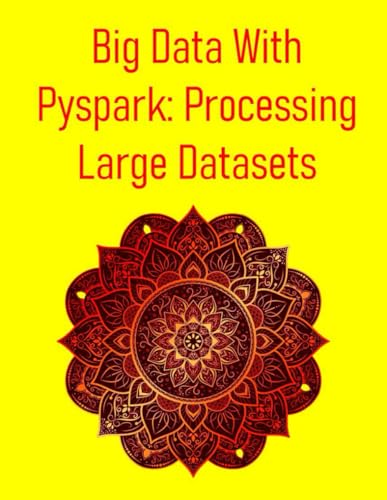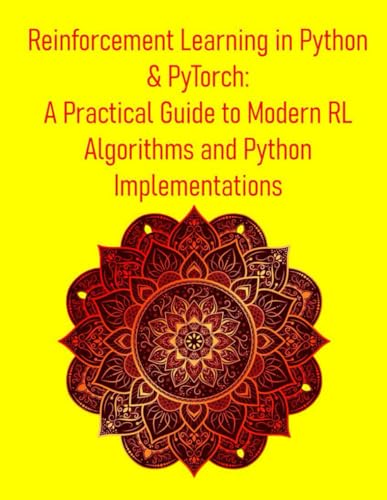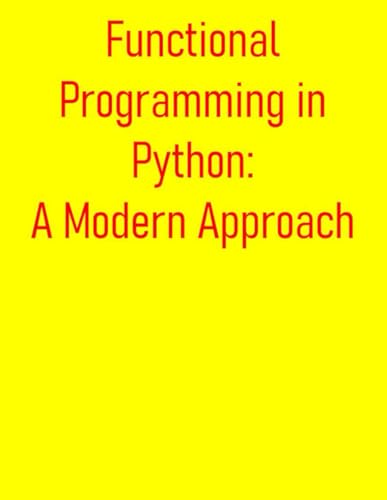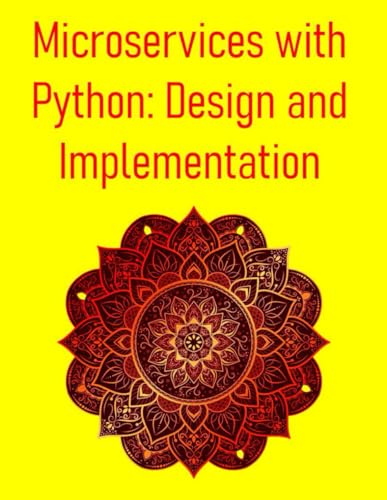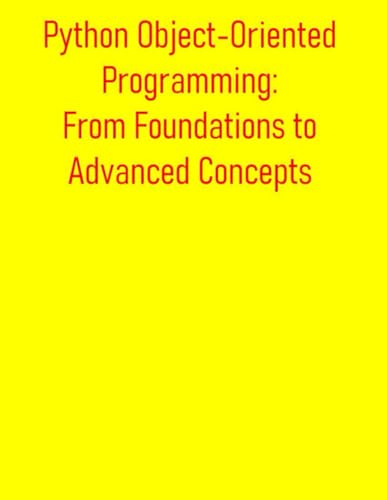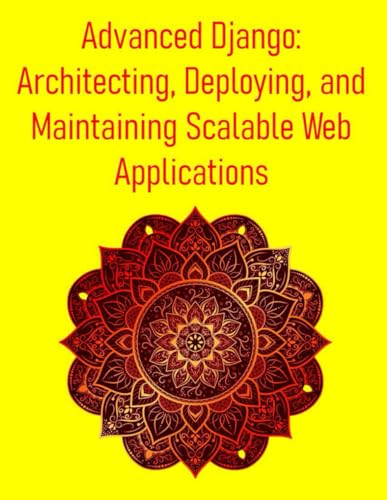publishing pythquill (118 Ergebnisse)
FeedbackSuchfilter
Produktart
- Alle Product Types
- Bücher (118)
- Magazine & Zeitschriften (Keine weiteren Ergebnisse entsprechen dieser Verfeinerung)
- Comics (Keine weiteren Ergebnisse entsprechen dieser Verfeinerung)
- Noten (Keine weiteren Ergebnisse entsprechen dieser Verfeinerung)
- Kunst, Grafik & Poster (Keine weiteren Ergebnisse entsprechen dieser Verfeinerung)
- Fotografien (Keine weiteren Ergebnisse entsprechen dieser Verfeinerung)
- Karten (Keine weiteren Ergebnisse entsprechen dieser Verfeinerung)
- Manuskripte & Papierantiquitäten (Keine weiteren Ergebnisse entsprechen dieser Verfeinerung)
Zustand Mehr dazu
- Neu (118)
- Wie Neu, Sehr Gut oder Gut Bis Sehr Gut (Keine weiteren Ergebnisse entsprechen dieser Verfeinerung)
- Gut oder Befriedigend (Keine weiteren Ergebnisse entsprechen dieser Verfeinerung)
- Ausreichend oder Schlecht (Keine weiteren Ergebnisse entsprechen dieser Verfeinerung)
- Wie beschrieben (Keine weiteren Ergebnisse entsprechen dieser Verfeinerung)
Einband
- alle Einbände
- Hardcover (Keine weiteren Ergebnisse entsprechen dieser Verfeinerung)
- Softcover (118)
Weitere Eigenschaften
- Erstausgabe (Keine weiteren Ergebnisse entsprechen dieser Verfeinerung)
- Signiert (Keine weiteren Ergebnisse entsprechen dieser Verfeinerung)
- Schutzumschlag (Keine weiteren Ergebnisse entsprechen dieser Verfeinerung)
- Angebotsfoto (4)
- Keine Print-on-Demand Angebote (58)
Sprache (1)
Gratisversand
- Kostenloser Versand nach Deutschland (Keine weiteren Ergebnisse entsprechen dieser Verfeinerung)
Land des Verkäufers
Verkäuferbewertung
-
Crash Course of Django for Beginners: Step-by-Step Guide to Web Development with Python: A Project-Based Approach to Master Python and Django: Learn Full-Stack Web Development from Scratch
Anbieter: Rarewaves.com UK, London, Vereinigtes Königreich
EUR 17,28
Währung umrechnenEUR 2,31 für den Versand von Vereinigtes Königreich nach DeutschlandAnzahl: Mehr als 20 verfügbar
In den WarenkorbPaperback. Zustand: New.
-
Mastering FastAPI: Building High-Performance Python Web Services: A Comprehensive Guide to Building High-Performance, Asynchronous, and Type-Safe Web Services and APIs
Anbieter: Rarewaves.com UK, London, Vereinigtes Königreich
EUR 28,02
Währung umrechnenEUR 2,31 für den Versand von Vereinigtes Königreich nach DeutschlandAnzahl: Mehr als 20 verfügbar
In den WarenkorbPaperback. Zustand: New.
-
Ethical AI & Responsible Machine Learning with Python (Paperback)
Anbieter: CitiRetail, Stevenage, Vereinigtes Königreich
EUR 18,44
Währung umrechnenEUR 28,90 für den Versand von Vereinigtes Königreich nach DeutschlandAnzahl: 1 verfügbar
In den WarenkorbPaperback. Zustand: new. Paperback. What You Will Learn in This BookUnderstand the Principles of Ethical AI: Learn why ethics is critical in AI development and how principles like fairness, transparency, accountability, and privacy can be practically applied to machine learning systems.Identify and Address Bias in Machine Learning: Discover the different sources and types of bias in datasets and models, and gain hands-on skills to detect, measure, and interpret bias using Python-based tools and metrics.Apply Fairness Metrics to Evaluate ML Models: Learn how to choose and implement fairness metrics such as demographic parity, equal opportunity, and predictive equality to assess the ethical impact of your models.Implement Bias Mitigation Techniques: Explore proven pre-processing, in-processing, and post-processing strategies to reduce unfairness in machine learning systems, and apply them using tools like AIF360 and Fairlearn.Build Explainable AI Systems: Understand the importance of explainability in AI and how to make machine learning models more interpretable using both model-specific and model-agnostic techniques with libraries such as LIME and SHAP.Visualize and Communicate Model Behavior: Gain practical experience generating visual explanations and summaries that help stakeholders understand model decisions, improve trust, and meet compliance standards.Strengthen ML Privacy and Security: Learn how to protect user data and mitigate privacy risks by implementing techniques like differential privacy, federated learning, and homomorphic encryption in your ML workflows.Evaluate and Defend Against Adversarial Threats: Understand common adversarial attacks on machine learning models and apply countermeasures to improve model robustness using Python libraries such as ART and CleverHans.Design Accountable AI Workflows: Discover how to create audit-ready documentation artifacts like model cards and datasheets, and incorporate traceability and reproducibility into your development pipeline.Integrate Ethics into MLOps Pipelines: Learn how to operationalize responsible AI practices by embedding fairness, explainability, and privacy checks into continuous integration and deployment (CI/CD) systems.Monitor and Maintain Ethical AI in Production: Develop strategies for tracking model performance and fairness over time, detecting ethical drift, and retraining models responsibly as data evolves.Foster Responsible AI Culture in Organizations: Explore how diverse teams, ethical review boards, and clear communication practices can help build a sustainable and accountable AI development culture.Apply Python to Real-World Responsible AI Projects: Work through end-to-end case studies that apply responsible AI principles to real-world scenarios in finance, healthcare, recommender systems, and NLP.Stay Informed on AI Ethics Trends and Regulations: Gain awareness of current and emerging global AI regulations, ethical frameworks, and industry standards that impact how AI systems are built and governed.Build a Long-Term Ethical AI Skillset: Equip yourself with tools, resources, and best practices to continue learning and adapting in the rapidly evolving field of ethical AI and responsible machine learning. Shipping may be from our UK warehouse or from our Australian or US warehouses, depending on stock availability.
-
Python Programming for Absolute Beginners (Paperback)
Anbieter: CitiRetail, Stevenage, Vereinigtes Königreich
EUR 19,04
Währung umrechnenEUR 28,90 für den Versand von Vereinigtes Königreich nach DeutschlandAnzahl: 1 verfügbar
In den WarenkorbPaperback. Zustand: new. Paperback. In this book, you will learn how to: Understand the Core Concepts of Programming: Grasp what "code" is, how programmers think, and why Python is celebrated as the perfect first language for beginners.Set Up Your Professional Coding Environment: Follow step-by-step instructions to install Python on any operating system (Windows, macOS, or Linux) and get comfortable with essential tools like code editors and IDEs.Master Python's Fundamental Building Blocks: Write and run your very first complete Python programs.Use variables to store and manage data, including text (strings), whole numbers (integers), and decimal numbers (floats).Make your programs interactive by capturing user input with the input() function.Perform calculations and manipulate text using Python's powerful operators.Convert data between different types, a crucial skill for handling user input.Control the Flow of Your Programs: Teach your programs how to make intelligent decisions and take different paths using if, elif, and else statements.Construct powerful conditional logic with comparison (==, >) and logical (and, or) operators.Automate Repetitive Tasks with Loops: Use for loops to repeat actions a specific number of times or to iterate through data collections.Create dynamic while loops that continue to run as long as a certain condition is true.Gain fine-tuned control over your loops with the break and continue statements.Organize and Manage Your Code: Write your own reusable functions to make your code cleaner, more organized, and easier to debug.Learn how to import and use modules from Python's Standard Library, giving you access to powerful, pre-written code for tasks involving math, random numbers, and more.Work with Collections of Data: Get introduced to lists, Python's versatile tool for storing ordered collections of items.Learn how to add, remove, access, and modify items within a list.Build Your First Complete Project from Scratch: Apply everything you've learned to plan, code, and debug a fun, interactive Number Guessing Game.Learn basic error handling with try-except blocks to make your programs more robust and user-friendly. Shipping may be from our UK warehouse or from our Australian or US warehouses, depending on stock availability.
-
EUR 19,04
Währung umrechnenEUR 28,90 für den Versand von Vereinigtes Königreich nach DeutschlandAnzahl: 1 verfügbar
In den WarenkorbPaperback. Zustand: new. Paperback. What You Will Learn in This BookUnderstand the philosophical underpinnings that shape Python's design and how they influence every line of code you write.Master the "Zen of Python" principles, learning to apply concepts like beauty, simplicity, explicitness, and readability to elevate your code quality.Distinguish between necessary complexity and needless complication, enabling you to design robust and straightforward solutions.Grasp Python's approach to error handling and ambiguity, learning how to make your code more predictable and reliable.Internalize the "one obvious way" principle, reducing cognitive load and improving consistency in your Python projects.Explore the power of namespaces and their role in creating modular, organized, and scalable Python applications.Leverage Python's "batteries included" philosophy by effectively utilizing the standard library for increased productivity.Apply duck typing and polymorphism to write flexible and dynamic code, while also understanding the role of modern type hints.Utilize iterators and generators to manage memory efficiently and process large datasets with elegance.Implement context managers for reliable resource management, ensuring clean setup and teardown of operations.Employ decorators to extend functionality in a clean, reusable, and Pythonic manner.Write concise and expressive code using comprehensions, understanding their benefits for collection manipulation.Gain a deep understanding of Python's object model, including attributes, methods, and special methods, to truly leverage its dynamic nature.Appreciate the Python Enhancement Proposal (PEP) process and its role in the language's community-driven evolution.Understand the philosophical shifts from Python 2 to Python 3 and the lessons learned from this significant transition.Recognize the impact of Python's philosophy on its vibrant community and its widespread adoption across diverse domains like web development, data science, and AI/ML.Identify and refactor "un-Pythonic" code, learning to avoid common anti-patterns that compromise maintainability and readability.Anticipate future trends and challenges in Python's evolution, such as concurrency and performance, and how they might align with or challenge its core philosophy.Develop a strong foundation for writing truly Pythonic code that is not only functional but also elegant, maintainable, and aligned with the language's core design principles. Shipping may be from our UK warehouse or from our Australian or US warehouses, depending on stock availability.
-
Building Real-time Web Applications with Python (WebSockets, Channels) (Paperback)
Anbieter: CitiRetail, Stevenage, Vereinigtes Königreich
EUR 19,04
Währung umrechnenEUR 28,90 für den Versand von Vereinigtes Königreich nach DeutschlandAnzahl: 1 verfügbar
In den WarenkorbPaperback. Zustand: new. Paperback. What You Will Learn in This BookMaster the fundamentals of real-time web applications, understanding their core principles, benefits, and how they differ from traditional web models.Comprehend the limitations of the HTTP protocol for persistent, bidirectional communication and the historical workarounds like polling and Server-Sent Events.Gain a deep understanding of WebSockets (RFC 6455), including their handshake process, data transfer mechanisms, and security considerations, establishing a strong foundation for modern real-time communication.Become proficient in asynchronous programming with Python's asyncio, learning about event loops, coroutines, tasks, and how to write efficient, non-blocking code essential for scalable real-time systems.Build robust WebSocket servers and clients using Python's websockets library, learning to manage connections, handle messages, and implement basic real-time features like chat.Implement secure authentication and authorization mechanisms for WebSocket applications, safeguarding your real-time data and controlling access to resources.Develop strategies for scaling and deploying Python WebSocket applications, including using load balancers, message brokers (like Redis Pub/Sub), reverse proxies, and containerization with Docker.Integrate real-time capabilities into your Django projects using Django Channels, understanding its architecture, consumers, routing, and channel layers.Create dynamic and interactive features within Django applications by leveraging consumers and routing to handle WebSocket connections and messages.Utilize Channel Layers and Groups in Django Channels to efficiently broadcast messages to multiple clients and manage real-time group communication.Seamlessly integrate Django's ORM and authentication system with Channels consumers, enabling real-time interactions with your database and user sessions.Implement advanced features in Django Channels, such as sending messages from outside consumers, handling background tasks, and creating custom middleware.Develop effective testing strategies for real-time applications, specifically learning to unit test consumers and channel layer interactions in Django Channels.Successfully deploy Django Channels applications using ASGI servers like Daphne or Uvicorn, configuring Nginx for WebSocket proxying, and managing channel layer backends in production.Implement crucial security measures for real-time Python applications, including protection against Cross-Site WebSocket Hijacking and Denial of Service attacks, along with robust input validation.Optimize the performance of your real-time systems, identifying bottlenecks, fine-tuning WebSocket message handling, and effectively using monitoring tools.Design resilient and scalable real-time architectures, considering principles like decoupling, idempotency, and robust error handling.Analyze real-world case studies such as live dashboards, collaborative editing, and multiplayer game backends to understand practical applications of real-time technologies.Explore the future landscape of real-time web technologies and Python's evolving role, preparing you for upcoming trends and continued learning. Shipping may be from our UK warehouse or from our Australian or US warehouses, depending on stock availability.
-
EUR 19,04
Währung umrechnenEUR 28,90 für den Versand von Vereinigtes Königreich nach DeutschlandAnzahl: 1 verfügbar
In den WarenkorbPaperback. Zustand: new. Paperback. You'll LearnUnderstand fundamental memory concepts: Gain a deep understanding of core memory concepts, including RAM, virtual memory, the stack, and the heap, and how these foundational principles relate to Python's execution environment.Master CPython's automatic memory management: Master CPython's core automatic memory management techniques: reference counting and the generational garbage collector, learning their internal mechanisms, advantages, and inherent limitations (such as handling circular references).Proficiently use the gc module: Become proficient in using the gc module to interact with and debug Python's garbage collector, including enabling/disabling it, forcing collections, and adjusting thresholds.Leverage the weakref module: Learn how to leverage the weakref module to manage object references without creating strong ties, making it invaluable for caching mechanisms and preventing unintended reference cycles.Understand CPython's specialized allocators: Understand CPython's specialized memory allocators, particularly pymalloc, and how they optimize memory allocation for small Python objects, contrasting them with direct system allocator interactions.Analyze built-in type memory footprint: Analyze the memory footprint of Python's built-in data types (integers, strings, lists, dictionaries, etc.), understanding factors like object overhead, interning, and dynamic resizing strategies.Optimize custom classes with __slots__: Optimize memory usage in your custom classes by effectively implementing __slots__, grasping its benefits for memory reduction and its trade-offs regarding flexibility and inheritance.Acquire memory profiling and debugging skills: Acquire practical skills in memory profiling and debugging using Python's built-in tracemalloc module to trace allocations and gc module functions (like get_objects, get_referrers) to inspect live objects.Develop memory leak resolution strategies: Develop systematic strategies for identifying, diagnosing, and resolving common memory leaks in Python applications, utilizing profiling tools and understanding typical leak patterns.Implement advanced memory optimization techniques: Implement advanced memory optimization techniques, including choosing appropriate data structures for specific use cases, processing large datasets efficiently, and carefully managing caches.Understand CPython C API and extensions (advanced): (For advanced readers) Understand memory management within the Python C API and C extensions, including manual reference counting in C, and gain insights from key CPython source code files.Appreciate diverse Python implementations' memory management: Appreciate the diverse approaches to memory management in alternative Python implementations like Jython, IronPython, PyPy, and MicroPython, broadening your perspective beyond CPython.Formulate and apply memory-efficient best practices: Formulate and apply best practices for writing high-performance, memory-efficient, and robust Python code for various application domains. Shipping may be from our UK warehouse or from our Australian or US warehouses, depending on stock availability.
-
EUR 21,42
Währung umrechnenEUR 28,90 für den Versand von Vereinigtes Königreich nach DeutschlandAnzahl: 1 verfügbar
In den WarenkorbPaperback. Zustand: new. Paperback. What You Will Learn in This BookMaster the fundamentals of Python code organization, understanding why a structured approach is crucial for readability, maintainability, reusability, and collaborative development.Effectively utilize Python modules to break down large programs, reuse code, and manage namespaces, along with best practices for their creation and design.Implement Python packages to structure larger projects hierarchically, avoiding naming conflicts and streamlining complex application development.Navigate Python's module search path (sys.path) to ensure your custom modules and packages are correctly discovered and imported.Apply best practices for writing clean, maintainable modules and packages, including naming conventions, docstrings, minimizing side effects, and avoiding common pitfalls like circular imports.Leverage key standard library modules to efficiently handle common programming tasks, from file system interactions to data manipulation and more.Differentiate between absolute and relative imports, understanding when and how to use each for clear and robust package importing.Optimize the use of __init__.py files for package initialization, API exposure, and internal module aggregation.Create and manage isolated Python environments using venv or conda to prevent dependency conflicts and ensure project reproducibility.Manage project dependencies effectively using pip and requirements.txt files, and gain an introduction to modern tools like pyproject.toml.Design and implement common project structures for various Python applications, including web applications, data science projects, and libraries.Build installable Python packages using setuptools and pyproject.toml, preparing your code for wider distribution.Publish your Python packages to PyPI, making your creations easily accessible to others in the Python community.Identify and avoid common anti-patterns in code organization, leading to more robust and scalable applications.Integrate code quality tools such as linters, formatters, and import sorters into your development workflow for consistent and high-quality code. Shipping may be from our UK warehouse or from our Australian or US warehouses, depending on stock availability.
-
EUR 21,42
Währung umrechnenEUR 28,90 für den Versand von Vereinigtes Königreich nach DeutschlandAnzahl: 1 verfügbar
In den WarenkorbPaperback. Zustand: new. Paperback. What You Will Learn in This BookMaster the core principles of Python's dynamic nature, understanding how objects, functions, and classes behave at runtime to enable advanced programming techniques.Decipher Python's execution model, from source code to bytecode, and grasp how the Python Virtual Machine (PVM) processes your programs, including the intricacies of namespaces and scopes.Become proficient in using decorators, not just as syntactic sugar, but as powerful tools for code modification, extension, and reusability, including advanced techniques like parameterized and class decorators.Gain deep expertise in descriptors to precisely control attribute access, implement custom property behaviors, and understand the mechanics behind built-in Python features like atproperty, atclassmethod, and atstaticmethod.Understand and apply metaclasses to become the "architect of your classes," enabling you to create dynamic class structures, enforce architectural patterns, and build sophisticated Domain-Specific Languages (DSLs).Leverage advanced attribute access mechanisms such as __getattr__, __getattribute__, and __slots__ for building flexible proxy objects, optimizing memory, and generating methods dynamically.Implement and utilize Abstract Base Classes (ABCs) to define clear interfaces and contracts for your code, ensuring consistent behavior across different implementations and improving type checking.Explore Python's Abstract Syntax Trees (ASTs) to programmatically analyze, modify, and generate Python code, opening doors to custom linters, code transformers, and powerful code manipulation.Apply metaprogramming techniques to real-world problems, including building simplified Object-Relational Mappers (ORMs), creating robust plugin architectures, and designing declarative APIs.Develop strategies for effectively debugging and optimizing metaprogrammed code, understanding the performance implications and best practices for writing maintainable and scalable advanced Python solutions. Shipping may be from our UK warehouse or from our Australian or US warehouses, depending on stock availability.
-
Python Command-Line Interface (CLI) Tools Development (Paperback)
Anbieter: CitiRetail, Stevenage, Vereinigtes Königreich
EUR 21,42
Währung umrechnenEUR 28,90 für den Versand von Vereinigtes Königreich nach DeutschlandAnzahl: 1 verfügbar
In den WarenkorbPaperback. Zustand: new. Paperback. What You Will Learn in This BookUnderstand the Role and Relevance of CLIs - Learn why command-line interfaces remain essential for automation, scripting, and professional workflows, and when to use them.Master Python's Built-in CLI Tools - Gain hands-on experience with sys.argv and argparse for parsing arguments, handling options, and building simple yet effective CLI applications.Set Up Robust Development Environments - Discover best practices for structuring CLI projects, using virtual environments, managing dependencies, and writing executable Python scripts.Harness the Power of Click for Modern CLIs - Build scalable and user-friendly CLI tools with the Click framework, using decorators to define commands, arguments, and options efficiently.Leverage Typer and Type Hints for Simplicity - Learn to use Typer for concise, type-safe CLI applications that support modern development standards like type hints and automatic documentation.Enhance Terminal Output with Rich - Create visually compelling CLI interfaces using Rich for colored text, tables, spinners, progress bars, markdown rendering, and structured logs.Design Intuitive and User-Friendly Interfaces - Apply proven principles of usability, discoverability, and feedback to make your CLI tools accessible, consistent, and effective.Organize and Scale Complex CLI Applications - Structure large CLI projects with modular code organization, subcommands, plugin systems, and context management for maintainability and flexibility.Implement Configuration Management Best Practices - Use configuration files, environment variables, and command-line arguments to build flexible tools with user and project-specific settings.Support Input, Output, and Piping Workflows - Build tools that work seamlessly with Unix-like pipelines and standard input/output, handling text, files, binary data, and temporary files.Write and Run Comprehensive Tests - Learn to test CLI applications using pytest, unittest, Click's CliRunner, and Typer's TestClient, covering unit, integration, and error-case testing.Package Python CLIs for Distribution - Package your tools using modern Python packaging standards, define entry points, and manage dependencies effectively with tools like setuptools and Poetry.Distribute and Deploy Your CLI Tools - Publish to PyPI, create pip-installable packages, and generate standalone executables using PyInstaller, Nuitka, and other bundling tools.Build Responsive Asynchronous CLIs - Integrate asyncio into your CLI workflows for performing concurrent tasks like network requests and long-running operations without blocking the interface.Internationalize and Localize Your CLI Tools - Prepare your applications for global audiences by supporting multiple languages, localized messages, and culturally appropriate formats.Follow Best Practices for CLI Security - Secure your applications by managing secrets responsibly, validating inputs, and avoiding vulnerabilities such as command injection.Apply Real-World CLI Patterns and Techniques - Learn from fully built examples including a file organizer, API client, and task runner to see how core principles translate into working software.Compare Popular Python CLI Libraries - Make informed decisions by comparing argparse, Click, Typer, and others based on use case, developer ergonomics, and ecosystem maturity.Discover Helpful CLI Utilities and Workflows - Explore productivity tools and patter Shipping may be from our UK warehouse or from our Australian or US warehouses, depending on stock availability.
-
Building Recommendation Systems in Python (Paperback)
Anbieter: CitiRetail, Stevenage, Vereinigtes Königreich
EUR 21,42
Währung umrechnenEUR 28,90 für den Versand von Vereinigtes Königreich nach DeutschlandAnzahl: 1 verfügbar
In den WarenkorbPaperback. Zustand: new. Paperback. You'll LearnUnderstand the Foundations of Recommendation Systems: Grasp the core principles, historical context, and formal problem definition of recommendation systems, including user-item interactions and feedback types.Identify Key Challenges in Recommender Systems: Learn to recognize and address common hurdles like data sparsity, the cold start problem, scalability, and ethical considerations in recommendation engine development.Navigate the Recommendation System Landscape: Explore a comprehensive taxonomy of algorithms, including collaborative filtering, content-based methods, matrix factorization, and deep learning approaches, along with their diverse use cases across industries.Master Essential Python Libraries and Tools: Become proficient in using core data science libraries such as NumPy, Pandas, and Scikit-learn, along with specialized tools like Surprise, Implicit, TensorFlow, and PyTorch for building recommendation systems.Perform Robust Data Collection and Preprocessing: Acquire the skills to gather, clean, transform, and represent various types of data-user, item, interaction, and contextual-essential for training effective recommendation models.Implement Core Recommendation Algorithms: Gain hands-on experience building and applying fundamental algorithms like User-Based and Item-Based Collaborative Filtering, and Content-Based Filtering from scratch and using established libraries.Apply Matrix Factorization Techniques: Understand and implement advanced methods such as SVD, FunkSVD, ALS, and NMF to uncover latent factors in user-item interactions for accurate predictions.Design and Utilize Knowledge-Based Systems: Learn when and how to leverage explicit knowledge and rules to build effective recommendation systems, particularly for complex items or sparse data scenarios.Develop Hybrid Recommendation Approaches: Discover strategies for combining different recommendation techniques to overcome individual limitations and improve overall system performance and robustness.Integrate Deep Learning into Recommenders: Explore how neural networks, including NCF, Autoencoders, RNNs, and CNNs, can model complex patterns and enhance recommendation accuracy, especially with diverse data types.Incorporate Context into Recommendations: Understand the significance of contextual information and apply techniques like Tensor Factorization and Factorization Machines to build more personalized and relevant context-aware systems.Explore Reinforcement Learning for Dynamic Recommendations: Get an introduction to framing recommendation as an RL problem, utilizing concepts like Multi-Armed Bandits and Q-Learning for adaptive and sequential recommendations.Evaluate Recommendation Systems Effectively: Master a range of offline and online evaluation metrics, including MAE, RMSE, Precision, Recall, NDCG, and A/B testing, to rigorously assess model performance and business impact.Build Scalable Recommendation Engines: Learn architectural considerations, data pipeline design, model serving strategies, and distributed computing frameworks necessary for deploying robust, production-ready recommendation systems.Analyze Real-World Recommendation Systems: Examine detailed case studies of prominent recommendation systems from industry leaders like Netflix, Amazon, Spotify, and YouTube to gain insights from practical applications.Anticipate Future Trends in Recommendations: Stay ahead by understanding emerging areas such as Explainable AI, conversational Shipping may be from our UK warehouse or from our Australian or US warehouses, depending on stock availability.
-
Content Management System Wagtail with Python (Paperback)
Anbieter: CitiRetail, Stevenage, Vereinigtes Königreich
EUR 21,42
Währung umrechnenEUR 28,90 für den Versand von Vereinigtes Königreich nach DeutschlandAnzahl: 1 verfügbar
In den WarenkorbPaperback. Zustand: new. Paperback. What You Will Learn in This BookMaster the fundamentals of Wagtail CMS and its place within the Python/Django ecosystem, understanding why it's the preferred choice for flexible content management.Set up a robust Wagtail development environment from scratch, including Python, Django, essential tools, and your very first Wagtail site.Design and define content effectively using Wagtail's Page Models, creating custom content types and organizing your site's hierarchy.Render dynamic content using Django's templating engine, and integrate basic styling, static files, and navigation menus.Leverage the power of StreamField to build highly flexible and structured content, utilizing various block types for rich, modular page layouts.Efficiently manage and display images and documents within your Wagtail projects, including advanced features like image manipulation and collections.Implement reusable content components using Snippets for common elements like testimonials or author bios across your site.Manage non-page content and custom data models with ModelAdmin, gaining control over diverse datasets within the Wagtail admin interface.Build interactive forms and capture user input using Wagtail's built-in form functionalities and custom form pages.Integrate robust search capabilities into your Wagtail site, from basic database search to advanced indexing with tools like Elasticsearch.Develop headless CMS solutions with the Wagtail API, enabling decoupled frontends for modern web and mobile applications.Implement internationalization and multi-site management to cater to global audiences and manage multiple websites from a single Wagtail instance.Control user access and permissions within the Wagtail admin, defining roles and managing content visibility.Customize and extend Wagtail's core functionalities through advanced StreamField techniques, hooks, and signals.Create and integrate custom Wagtail applications and third-party packages, enhancing your site's features and reusability.Adopt modern frontend integration strategies and workflows, including integrating with JavaScript frameworks and static site generation.Successfully deploy your Wagtail projects to production environments, covering server configuration, security, and CI/CD basics.Optimize your Wagtail site for peak performance using caching mechanisms, database query optimization, and frontend best practices.Maintain and secure your Wagtail applications, learning about regular maintenance, security best practices, and effective upgrade strategies.Apply Wagtail to real-world scenarios through practical case studies, such as building blogs, e-commerce integrations, and documentation sites.Engage with the vibrant Wagtail community and contribute to its ongoing development and future. Shipping may be from our UK warehouse or from our Australian or US warehouses, depending on stock availability.
-
EUR 21,42
Währung umrechnenEUR 28,90 für den Versand von Vereinigtes Königreich nach DeutschlandAnzahl: 1 verfügbar
In den WarenkorbPaperback. Zustand: new. Paperback. What You Will Learn in This BookEstablish a robust testing foundation by understanding the importance of software testing, the testing pyramid (Unit, Integration, E2E), and core terminology.Set up your Python testing environment and choose the right framework for your projects, with a practical comparison of unittest and pytest.Master pytest for effective unit testing, including writing clear test functions, utilizing powerful fixtures, parametrizing tests for efficiency, and managing test execution with markers.Isolate your code for precise unit tests using mocking and patching techniques with unittest.mock and the pytest-mock library, ensuring your tests focus only on the code under examination.Confidently test diverse Python code structures, from functions and classes to decorators, context managers, generators, and command-line interfaces.Implement comprehensive integration testing strategies to verify interactions between components, including databases and APIs, learning to manage complex setups and external dependencies.Develop and maintain resilient end-to-end (E2E) tests that simulate real user flows, utilizing tools like Selenium and Playwright, and applying design patterns like the Page Object Model.Integrate Test-Driven Development (TDD) into your workflow using the Red-Green-Refactor cycle, and apply Behavior-Driven Development (BDD) principles with tools like behave and pytest-bdd.Discover property-based testing with Hypothesis to automatically generate diverse test cases, uncover edge cases, and enhance the robustness of your algorithms and data structures.Assess and improve your test quality using code coverage tools (pytest-cov) and understand the benefits of mutation testing for truly effective test suites.Automate your testing within Continuous Integration (CI) pipelines using platforms like GitHub Actions, ensuring consistent and rapid feedback on code changes.Tackle specialized testing scenarios, including asynchronous Python code with asyncio, data science and machine learning applications, and complex microservices architectures.Cultivate a strong testing culture within your development lifecycle, understanding the role of testing in Agile and DevOps, and effectively debugging and learning from test failures.Stay ahead with emerging trends in the evolving Python testing ecosystem, including the impact of AI and machine learning on test automation. Shipping may be from our UK warehouse or from our Australian or US warehouses, depending on stock availability.
-
EUR 21,42
Währung umrechnenEUR 28,90 für den Versand von Vereinigtes Königreich nach DeutschlandAnzahl: 1 verfügbar
In den WarenkorbPaperback. Zustand: new. Paperback. What You Will Learn in This BookUnderstand the core principles of serverless computing, including Function as a Service (FaaS) and Backend as a Service (BaaS), and how they differ from traditional architectures.Identify the benefits and drawbacks of serverless for your projects, covering aspects like cost efficiency, scalability, latency, and vendor lock-in.Set up robust development environments for both AWS and Google Cloud, including essential tools like Python, CLIs, and version control.Build, deploy, and manage Python-based serverless functions on AWS Lambda, mastering concepts like handler functions, invocation types, and configuration settings.Integrate AWS Lambda functions with various event sources, such as API Gateway for web APIs, S3 for data processing, DynamoDB streams for data changes, and SQS/SNS for asynchronous communication.Implement advanced AWS Lambda features, including managing dependencies with layers, handling errors with Dead-Letter Queues, and securing functions within VPCs.Develop, deploy, and manage Python-based serverless functions on Google Cloud Functions, understanding entry points, execution models, and core configurations.Connect Google Cloud Functions to diverse triggers, including HTTP for webhooks, Pub/Sub for messaging, Cloud Storage for file events, and Firestore for database changes.Leverage advanced Google Cloud Functions capabilities, such as effective dependency management, error handling, and networking with VPC connectors.Master testing and debugging techniques for both AWS Lambda and Google Cloud Functions, utilizing local emulation tools, unit testing frameworks, and cloud-based observability services like CloudWatch, Cloud Logging, AWS X-Ray, and Cloud Trace.Implement continuous integration and continuous delivery (CI/CD) pipelines for serverless applications using tools like AWS SAM, Serverless Framework, AWS CodePipeline, and Google Cloud Build.Compare and contrast AWS Lambda and Google Cloud Functions across key areas like performance, pricing, developer experience, and security to make informed platform decisions.Apply serverless design patterns and best practices, including statelessness, idempotency, asynchronous communication, and strategies for managing state and optimizing cold starts.Secure your serverless Python applications by applying the principle of least privilege, managing secrets effectively, and understanding common security pitfalls.Gain proficiency in observability strategies for serverless, encompassing structured logging, metrics, alerting, and distributed tracing.Explore emerging trends and the future of serverless computing, including serverless containers, WebAssembly, and edge computing. Shipping may be from our UK warehouse or from our Australian or US warehouses, depending on stock availability.
-
Python Concurrency and Parallelism (Paperback)
Anbieter: CitiRetail, Stevenage, Vereinigtes Königreich
EUR 21,42
Währung umrechnenEUR 28,90 für den Versand von Vereinigtes Königreich nach DeutschlandAnzahl: 1 verfügbar
In den WarenkorbPaperback. Zustand: new. Paperback. What You Will Learn in This BookMaster the core principles of concurrency and parallelism to write more efficient and responsive Python applications.Understand Python's Global Interpreter Lock (GIL) and learn effective strategies to work with or around its limitations.Implement threading effectively for I/O-bound tasks, including advanced synchronization techniques and thread pool management.Develop asynchronous applications with Asyncio, leveraging coroutines, event loops, and non-blocking I/O for high-performance network programming.Utilize the multiprocessing module to achieve true parallel execution, bypass the GIL, and leverage multiple CPU cores.Facilitate inter-process communication (IPC) using various methods like pipes, queues, and shared memory.Optimize CPU-bound tasks by distributing work across multiple processes using process pools.Make informed decisions on when to use threading, Asyncio, or multiprocessing based on your application's requirements.Design and implement hybrid concurrency models by combining different approaches for optimal performance.Apply essential debugging and testing strategies specific to concurrent and parallel Python code.Profile and optimize your concurrent applications to identify bottlenecks and enhance performance.Explore real-world case studies demonstrating practical applications of concurrency and parallelism in various scenarios.Recognize and apply common design patterns for building robust concurrent and parallel systems.Stay informed about emerging trends and the future of concurrency in Python. Shipping may be from our UK warehouse or from our Australian or US warehouses, depending on stock availability.
-
EUR 21,42
Währung umrechnenEUR 28,90 für den Versand von Vereinigtes Königreich nach DeutschlandAnzahl: 1 verfügbar
In den WarenkorbPaperback. Zustand: new. Paperback. What You Will Learn in This BookMaster the deployment lifecycle: Understand the entire journey of a web application from local development to being live in production environments.Prepare applications for production: Get your Python application ready for prime time with best practices for code structure, configuration, dependency management, logging, and serving static files.Utilize essential tools: Leverage fundamental development tools like Git for version control and various task runners to streamline your daily workflow.Choose and configure WSGI/ASGI servers: Make informed decisions and properly set up Gunicorn, uWSGI, Uvicorn, and Daphne for optimal application performance and stability.Grasp Docker fundamentals: Understand the core concepts of containerization and Docker and effectively Dockerize your Python web applications.Orchestrate with Docker Compose: Seamlessly manage multi-container development environments for your applications, including databases and caches.Deploy to Virtual Private Servers (VPS): Learn the ins and outs of traditional server deployment, including server setup, hardening, reverse proxy configuration with Nginx, and process management.Deploy to Platform as a Service (PaaS): Discover how to efficiently deploy Python applications to services like Heroku, AWS Elastic Beanstalk, and Google App Engine.Transition Docker to production: Successfully move your Dockerized applications from development to live production environments, including using container registries.Introduce Kubernetes for Python apps: Get a solid foundation in Kubernetes core concepts and learn how to deploy, manage, and scale your Python applications within a cluster.Explore serverless deployment (FaaS): Understand and implement event-driven architectures using serverless functions with AWS Lambda, Google Cloud Functions, and Azure Functions.Implement CI/CD pipelines: Automate your development and deployment processes with Continuous Integration and Continuous Deployment, using tools like GitHub Actions and GitLab CI/CD.Establish monitoring and alerting: Set up robust systems to track application and system health, identify issues proactively, and ensure continuous operation.Strategically scale your application: Learn techniques for vertical and horizontal scaling, including load balancing, autoscaling, and database optimization.Apply security best practices: Implement crucial security measures throughout your deployment, from HTTPS and server hardening to dependency auditing and disaster recovery planning.Manage production databases effectively: Learn how to handle database migrations, backups, restores, and performance tuning in a production setting.Automate infrastructure with IaC: Utilize Infrastructure as Code (IaC) tools like Terraform to provision and manage your deployment resources reproducibly.Dive into advanced Kubernetes: Explore more complex Kubernetes concepts such as Helm charts, StatefulSets, and service meshes for sophisticated deployments.Understand microservices deployment: Gain insights into the unique considerations and patterns for deploying Python-based microservices.Stay current with future trends: Keep up-to-date with emerging technologies and best practices in Python web deployment.Troubleshoot common issues: Effectively diagnose and resolve common deployment problems, leveraging provided resources for ongo Shipping may be from our UK warehouse or from our Australian or US warehouses, depending on stock availability.
-
EUR 21,42
Währung umrechnenEUR 28,90 für den Versand von Vereinigtes Königreich nach DeutschlandAnzahl: 1 verfügbar
In den WarenkorbPaperback. Zustand: new. Paperback. What You Will Learn in This BookUnderstand and apply the "Pythonic" philosophy to write code that's not just functional but also elegant, readable, and easy to maintain, adhering to the principles of the Zen of Python.Set up a professional Python development environment, mastering tools for version management, virtual environments, linters, formatters, and type checkers to ensure clean and robust code from the start.Leverage Python's data model by understanding special ("dunder") methods and duck typing to create flexible, powerful, and idiomatic custom objects.Write clean, readable, and well-documented code by mastering PEP 8 style guidelines, crafting effective functions, and implementing Pythonic control flow and exception handling.Utilize Python's built-in data structures (lists, tuples, dictionaries, sets) effectively, including advanced techniques like comprehensions and choosing the right structure for various scenarios.Master iteration and generate sequences efficiently using iterables, iterators, generator functions, and the powerful itertools module.Enhance and modify functions and methods with decorators, understanding their practical applications for tasks like logging, caching, and authentication.Apply Pythonic object-oriented programming (OOP) principles, including inheritance, composition, properties, and data classes, to design well-structured and maintainable applications.Optimize your Python code for performance and memory efficiency by understanding the GIL, profiling bottlenecks, and applying advanced techniques like caching and algorithmic improvements.Develop robust and reliable software by writing effective unit, integration, and end-to-end tests using pytest and unittest, along with strategies for testable code and mocking.Document, package, and distribute your Python projects effectively, enabling collaboration and sharing your work with the broader Python community.Cultivate a mindset of continuous improvement in your Python journey, learning from others, staying updated, and contributing to the vibrant Python ecosystem. Shipping may be from our UK warehouse or from our Australian or US warehouses, depending on stock availability.
-
Error Handling and Debugging in Python (Paperback)
Anbieter: CitiRetail, Stevenage, Vereinigtes Königreich
EUR 21,42
Währung umrechnenEUR 28,90 für den Versand von Vereinigtes Königreich nach DeutschlandAnzahl: 1 verfügbar
In den WarenkorbPaperback. Zustand: new. Paperback. Here's what you will learn in this book: Understand and classify different types of errors in Python programs, including syntax errors, runtime errors (exceptions), and logical errors, and grasp why effective error handling is crucial for software stability and user experience.Navigate Python's exception hierarchy, recognize key built-in exception types, and proficiently read and interpret tracebacks to pinpoint the source of errors.Master core error handling constructs like try, except, else, and finally blocks to gracefully manage errors, execute cleanup actions, and write more robust code.Learn to raise and re-raise exceptions effectively, including chaining exceptions, to signal invalid states, enforce preconditions, and provide meaningful error messages within your applications.Design and implement custom exception classes to create specific, clear, and context-rich error types tailored to your application's unique needs, enhancing maintainability and debugging.Utilize context managers and the with statement for automatic resource management, ensuring that resources like files and network connections are properly released, even when exceptions occur.Apply best practices for error handling to write clean, maintainable, and resilient Python code, knowing when to catch specific exceptions and when to let errors propagate.Develop a systematic debugging mindset and employ fundamental debugging techniques, from strategic print() statements to understanding the anatomy of tracebacks.Become proficient with the Python Debugger (pdb), using its essential commands to step through code, set breakpoints, inspect variables, and navigate the call stack.Leverage integrated development environment (IDE) debuggers in tools like VS Code and PyCharm for a visual and efficient debugging experience, including conditional breakpoints and variable inspection.Implement effective logging strategies using Python's logging module to gain insights into program execution, diagnose issues in development and production environments, and integrate logging with error handling.Address error handling challenges in concurrent and asynchronous programming, understanding how exceptions behave in threads, processes, and asyncio tasks.Build robust interactions with external dependencies and APIs, handling common issues like network errors, API rate limits, and data validation, including strategies for retries and graceful degradation.Integrate static analysis tools, linters, and type checkers into your workflow to proactively detect potential errors, enforce consistent code style, and improve overall code quality.Utilize testing as a powerful error prevention and debugging tool, writing unit, integration, and end-to-end tests, including tests specifically designed for error conditions using frameworks like pytest.Analyze real-world case studies in web applications, data science scripts, CLI tools, and API interactions to see practical error handling and debugging strategies in action.Identify and avoid common anti-patterns in error handling and debugging that can lead to subtle bugs, difficult-to-diagnose issues, and brittle code.Design and build highly robust and resilient Python applications by incorporating principles of failure tolerance, graceful degradation, and continuous improvement in your error management strategies. Shipping may be from our UK warehouse or from our Australian or US warehouses, depending on stock availability.
-
EUR 22,61
Währung umrechnenEUR 28,90 für den Versand von Vereinigtes Königreich nach DeutschlandAnzahl: 1 verfügbar
In den WarenkorbPaperback. Zustand: new. Paperback. You'll LearnUnderstand the Foundations of Big Data and Distributed Computing: Gain a solid grasp of Big Data concepts, including the 5 Vs, the challenges of traditional systems, and the fundamental principles of distributed computing like parallelism, fault tolerance, and scalability.Master the PySpark Ecosystem: Learn the architecture of Apache Spark, its core components (Spark SQL, Structured Streaming, MLlib, GraphFrames), and how the PySpark API seamlessly integrates with Python.Set Up Your PySpark Environment: Get hands-on experience setting up a complete development environment on your local machine and learn how to run applications in various cloud platforms like Databricks, AWS EMR, and Google Cloud Dataproc.Process Data with RDDs and DataFrames: Master Spark's core data structures, from the low-level RDDs to the powerful and optimized DataFrames. Learn to apply a wide range of transformations and actions for data manipulation.Perform Advanced Data Wrangling and Feature Engineering: Acquire skills in data cleaning, handling missing values and duplicates, and performing complex transformations using Spark SQL, Window Functions, and User-Defined Functions (UDFs), including high-performance Pandas UDFs.Connect to Diverse Data Sources: Read and write data from various formats (CSV, JSON, Parquet) and connect to external systems like relational databases (JDBC), NoSQL stores (Cassandra, MongoDB), and cloud storage (S3, ADLS).Build Real-Time Data Pipelines: Implement modern, fault-tolerant data ingestion with Structured Streaming, including handling event time, watermarking, and performing stateful transformations for real-time analytics.Apply Machine Learning at Scale with MLlib: Learn to build and evaluate distributed machine learning pipelines for classification, regression, and clustering tasks using Spark's MLlib library.Analyze Graph-Structured Data: Explore the power of GraphFrames to model and analyze complex relationships, run graph algorithms like PageRank, and find patterns in network data.Optimize PySpark Applications for Performance: Dive deep into performance tuning, including understanding DAGs and shuffles, managing partitioning, optimizing joins, and configuring memory settings to make your code run faster and more efficiently.Monitor, Debug, and Deploy Applications: Utilize the Spark UI to monitor your jobs, troubleshoot common errors, and learn to package and deploy your PySpark applications to different cluster managers like YARN and Kubernetes.Solve Real-World Big Data Problems: Apply your knowledge through practical case studies, including building a recommendation engine, a real-time fraud detection system, and an ETL pipeline, to solidify your skills and build a portfolio. Shipping may be from our UK warehouse or from our Australian or US warehouses, depending on stock availability.
-
EUR 22,61
Währung umrechnenEUR 28,90 für den Versand von Vereinigtes Königreich nach DeutschlandAnzahl: 1 verfügbar
In den WarenkorbPaperback. Zustand: new. Paperback. What You Will Learn in This BookMaster the fundamentals of web application testing, including different testing types (functional, performance, security, etc.) and the testing pyramid model.Set up a complete Python testing environment from scratch, covering virtual environments, IDEs, and the installation of essential libraries like PyTest and Selenium WebDriver.Become proficient with PyTest, learning to write, organize, and run tests using its powerful features, including fixtures, markers, and parametrization for data-driven testing.Automate browser interactions using Selenium WebDriver, including navigating web pages, locating elements with various strategies (CSS Selectors, XPath), and interacting with forms, dropdowns, and alerts.Build a scalable and maintainable automation framework using the Page Object Model (POM) to write clean, reusable, and robust test code that is easy to manage.Handle dynamic web content and synchronization challenges by implementing effective waiting strategies to create reliable and stable tests.Integrate your test suite with CI/CD pipelines using tools like GitHub Actions or GitLab CI, enabling continuous testing and automated reporting.Generate comprehensive test reports using popular plugins like pytest-html and the powerful Allure Reporting Framework, complete with embedded screenshots and detailed steps.Run tests in parallel locally and on a distributed grid using pytest-xdist and Selenium Grid to significantly reduce test execution time.Expand your automation skills beyond UI testing by learning the basics of API testing with the requests library and using API calls to set up test data for your UI tests.Apply Behavior-Driven Development (BDD) principles using pytest-bdd to write human-readable tests that foster collaboration between technical and non-technical team members.Debug and troubleshoot common test failures effectively, analyzing error reports, utilizing logging, and implementing strategies to handle flaky tests.Implement best practices for writing maintainable test code, managing test data, and ensuring test independence to build a robust and scalable test automation framework.Explore advanced testing concepts such as performance and security testing, cross-browser compatibility, and testing modern Single Page Applications (SPAs). Shipping may be from our UK warehouse or from our Australian or US warehouses, depending on stock availability.
-
Reinforcement Learning in Python & PyTorch (Paperback)
Anbieter: CitiRetail, Stevenage, Vereinigtes Königreich
EUR 22,61
Währung umrechnenEUR 28,90 für den Versand von Vereinigtes Königreich nach DeutschlandAnzahl: 1 verfügbar
In den WarenkorbPaperback. Zustand: new. Paperback. You'll LearnGrasp the Foundational Theory of Reinforcement Learning: Understand the core components of RL, including the agent-environment interface, Markov Decision Processes (MDPs), and the Bellman equations that form the mathematical backbone of decision-making under uncertainty.Master Classic RL Algorithms: Learn and implement fundamental model-free and model-based algorithms like Monte Carlo methods, Temporal Difference (TD) learning (SARSA and Q-Learning), and Dynamic Programming to solve problems in simplified environments like Grid World and classic games.Implement Modern Deep Reinforcement Learning Algorithms: Use deep neural networks as function approximators to scale RL to complex, high-dimensional problems. You will build and train state-of-the-art agents using Deep Q-Networks (DQN), Policy Gradients (REINFORCE), and Actor-Critic methods (A2C/A3C).Tackle Continuous Control Tasks: Learn advanced actor-critic algorithms like DDPG, TD3, and SAC to train agents for tasks with continuous action spaces, such as robotics control and other complex simulations.Build and Debug Practical RL Systems in Python: Gain hands-on experience by implementing algorithms from scratch using popular libraries like NumPy, PyTorch, and Gymnasium. You will learn essential debugging strategies, hyperparameter tuning techniques, and best practices for evaluating your agents' performance.Explore Advanced and Cutting-Edge Topics: Dive into specialized areas of RL, including Multi-Agent Systems (MARL), Hierarchical Reinforcement Learning (HRL), Model-Based RL, and Offline RL. You will also learn about the revolutionary concept of Reinforcement Learning from Human Feedback (RLHF) and its role in aligning large language models.Apply RL to Real-World Case Studies: Understand how to frame diverse real-world problems-from robotics and game-playing to recommender systems and resource management-as RL problems and select the appropriate algorithms to solve them.Address the Challenges and Ethics of RL: Recognize key challenges like the exploration-exploitation dilemma and the "deadly triad." You will also gain an understanding of the ethical considerations, safety, and societal impact of deploying RL systems. Shipping may be from our UK warehouse or from our Australian or US warehouses, depending on stock availability.
-
Deep Learning with TensorFlow and Keras in Python (Paperback)
Anbieter: CitiRetail, Stevenage, Vereinigtes Königreich
EUR 22,61
Währung umrechnenEUR 28,90 für den Versand von Vereinigtes Königreich nach DeutschlandAnzahl: 1 verfügbar
In den WarenkorbPaperback. Zustand: new. Paperback. What You Will Learn in This BookBuild a Solid Foundation in Deep Learning: Gain a clear understanding of the core concepts of AI, machine learning, and deep learning, including the power of neural networks and the factors driving their current popularity.Master the TensorFlow and Keras Ecosystem: Learn to use TensorFlow 2.x and Keras to build, train, and evaluate your own deep learning models. You'll understand key components like Tensors, Layers, Optimizers, and Loss Functions, and learn to set up your own complete deep learning environment.Create Your Own Neural Networks: Get hands-on experience building foundational neural networks for classification and regression problems, learning the complete Keras workflow from defining models to making predictions and visualizing training history.Prevent Common Modeling Pitfalls: Understand the critical concepts of overfitting and underfitting and learn practical regularization techniques like Dropout, L1/L2 regularization, and Early Stopping to build more robust and generalizable models.Develop Advanced Computer Vision Solutions: Master Convolutional Neural Networks (CNNs) and their core components to build powerful image classification models. You'll learn how to work with image data, apply data augmentation, and use state-of-the-art pre-trained models with transfer learning.Work with Sequential Data like Text and Time Series: Dive into Recurrent Neural Networks (RNNs), including LSTMs and GRUs, to handle sequential data. You'll learn to prepare data for time series forecasting and perform sentiment analysis on text using word embeddings.Explore Cutting-Edge Architectures: Get a conceptual introduction to advanced models like Autoencoders for dimensionality reduction, Generative Adversarial Networks (GANs) for creating new data, and the groundbreaking Transformer architecture that powers modern NLP.Deploy Your Models to Production: Learn how to save your trained models in the recommended SavedModel format and explore different deployment strategies using TensorFlow Serving for web applications, TensorFlow Lite for mobile devices, and more.Enhance Model Performance and Interpretability: Discover techniques for hyperparameter tuning to optimize your models, and use tools like TensorBoard for visualization and debugging. You will also learn the basics of Explainable AI (XAI) to understand and interpret your model's predictions.Navigate the Ethical Landscape of AI: Understand the challenges of bias, fairness, and accountability in deep learning models and learn about responsible AI development practices. Shipping may be from our UK warehouse or from our Australian or US warehouses, depending on stock availability.
-
EUR 22,61
Währung umrechnenEUR 28,90 für den Versand von Vereinigtes Königreich nach DeutschlandAnzahl: 1 verfügbar
In den WarenkorbPaperback. Zustand: new. Paperback. You'll Learn: Master the Fundamentals of PyTorch: Learn to use PyTorch tensors, the foundational data structures for deep learning, and understand the Autograd engine to automatically compute gradients for efficient model training.Build and Train Your Own Neural Networks: Get hands-on experience building various neural network architectures, from simple Feedforward Networks (FNNs) to advanced Convolutional Neural Networks (CNNs) and Recurrent Neural Networks (RNNs).Tackle Real-World Computer Vision Problems: Implement CNNs for image classification and explore advanced techniques like transfer learning with popular pre-trained models such as ResNet, enabling you to solve complex image-based tasks with less data and computational effort.Process and Analyze Sequential Data: Understand how to work with sequential data like text and time series using RNNs, LSTMs, and GRUs, and apply these models to tasks like sentiment analysis and time series forecasting.Optimize and Fine-Tune Your Models: Learn to select the right loss functions and optimizers, implement learning rate scheduling, and apply powerful regularization techniques like Dropout and Batch Normalization to prevent overfitting and improve model performance.Handle Data Like a Pro: Use PyTorch's Dataset and DataLoader classes to efficiently load, preprocess, and augment data, preparing it for large-scale training and handling different data modalities.Evaluate and Interpret Model Performance: Master the essential evaluation metrics for both classification and regression, learn how to use TensorBoard for debugging and monitoring your training process, and understand how to save and load models for future use.Explore Advanced Deep Learning Architectures: Gain a conceptual and practical understanding of cutting-edge models like Transformers for NLP, Generative Adversarial Networks (GANs) for creating new data, and Autoencoders for dimensionality reduction and data reconstruction.Apply Your Skills to End-to-End Projects: Work through comprehensive, real-world projects in computer vision and natural language processing, applying the full deep learning pipeline from data preparation to model deployment.Deploy Your Models for Production: Learn how to export your PyTorch models for inference using TorchScript and ONNX, and explore methods for serving them via simple REST APIs or cloud platforms.Stay Up-to-Date and Continue Learning: Discover the key resources and communities for staying current in the rapidly evolving field of deep learning and contribute to the open-source ecosystem. Shipping may be from our UK warehouse or from our Australian or US warehouses, depending on stock availability.
-
Functional Programming in Python (Paperback)
Anbieter: CitiRetail, Stevenage, Vereinigtes Königreich
EUR 23,20
Währung umrechnenEUR 28,90 für den Versand von Vereinigtes Königreich nach DeutschlandAnzahl: 1 verfügbar
In den WarenkorbPaperback. Zustand: new. Paperback. What You Will Learn in This BookMaster the core principles of Functional Programming (FP), including immutability, pure functions, and higher-order functions, to write more predictable and testable Python code.Leverage Python's built-in functional tools like lambda expressions, map, filter, reduce, and various comprehensions for concise and efficient data manipulation.Utilize advanced functional techniques such as closures, decorators, partial application, and recursion to build sophisticated and reusable functions.Implement effective error handling strategies in a functional style, moving beyond traditional exception handling for more robust applications.Work with immutable data structures in Python, understanding their benefits for program clarity and concurrency, and explore relevant third-party libraries.Design and implement functional data processing pipelines using iterators, generators, and the itertools module for memory-efficient and scalable solutions.Apply functional design patterns like function composition and understand conceptual aspects of Monads and Functors to structure complex applications.Integrate functional programming seamlessly with Object-Oriented Python (OOP), learning when and how to combine paradigms for optimal results.Refactor existing imperative code into a functional style to improve readability, reduce side effects, and enhance maintainability.Develop robust testing strategies for functional code, benefiting from the inherent testability of pure functions and exploring property-based testing.Simplify concurrency and parallelism in your Python applications by minimizing shared mutable state and leveraging functional approaches with multiprocessing and asyncio.Utilize modern Python features like type hinting, structural pattern matching, and the walrus operator to write more expressive and type-safe functional code.Optimize functional Python code for performance, understanding the trade-offs and applying techniques like memoization where beneficial.Explore key functional programming libraries within the Python ecosystem, such as toolz and fn.py, to extend your functional toolkit.Analyze real-world case studies demonstrating the practical application of functional programming principles in various Python projects. Shipping may be from our UK warehouse or from our Australian or US warehouses, depending on stock availability.
-
Working with Files and I/O in Python (Paperback)
Anbieter: CitiRetail, Stevenage, Vereinigtes Königreich
EUR 23,20
Währung umrechnenEUR 28,90 für den Versand von Vereinigtes Königreich nach DeutschlandAnzahl: 1 verfügbar
In den WarenkorbPaperback. Zustand: new. Paperback. What You Will Learn in This BookThis book will equip you with the essential skills and knowledge to confidently handle file and directory operations in Python. By the end, you'll be able to: Master fundamental file interactions: Confidently open, read, and write data to various text and binary file types using Python's built-in capabilities, understanding different file modes and encodings.Efficiently manage your filesystem: Perform robust file and directory operations, including creating, deleting, renaming, moving, and listing contents, using both the os and shutil modules.Process common data formats: Read and write structured data in widely used formats like CSV, JSON, and XML using specialized Python modules, simplifying complex data handling.Optimize I/O performance: Grasp concepts of buffering and memory mapping (mmap) to significantly improve the speed and efficiency of your file operations, especially with large datasets.Serialize Python objects: Convert complex Python objects into storable byte streams using the pickle module and understand when to use it versus JSON, including critical security considerations.Work with temporary files and in-memory streams: Utilize Python's tempfile module for secure temporary storage and leverage io.StringIO and io.BytesIO for efficient in-memory data manipulation without touching the disk.Implement robust error handling: Effectively anticipate and manage common file I/O errors and exceptions, ensuring your applications are resilient and gracefully handle unexpected issues.Adopt Pythonic best practices: Write clean, maintainable, and secure file I/O code by consistently using with statements (context managers) and adhering to cross-platform compatibility guidelines.Embrace the modern pathlib module: Transition from string-based path manipulation to the object-oriented pathlib module for cleaner, more intuitive, and highly efficient filesystem interactions.Perform advanced filesystem tasks: Work with file metadata, understand and create symbolic/hard links, and get an introduction to archiving, compression, and monitoring filesystem changes.Understand asynchronous I/O (briefly): Get an introduction to non-blocking I/O concepts with asyncio and aiofiles for high-performance applications.Interact with network streams (briefly): Learn the basics of socket programming, standard I/O streams, and fetching web data, understanding their conceptual links to file I/O. Shipping may be from our UK warehouse or from our Australian or US warehouses, depending on stock availability.
-
EUR 23,20
Währung umrechnenEUR 28,90 für den Versand von Vereinigtes Königreich nach DeutschlandAnzahl: 1 verfügbar
In den WarenkorbPaperback. Zustand: new. Paperback. What You Will Learn in This BookFundamentals of Microservices: Grasp the core concepts, benefits, and challenges of microservice architecture, understanding its evolution from monolithic systems.Microservice Design Principles: Master essential design patterns like Single Responsibility, Bounded Contexts, Design for Failure, and decentralized data management for robust architectures.Python Development for Microservices: Set up an optimal Python development environment, including essential libraries, version management, and containerization with Docker.Build RESTful APIs with Python: Develop high-performance and scalable APIs using modern Python frameworks like Flask and FastAPI, incorporating data validation and asynchronous operations.Inter-Service Communication: Implement various communication patterns, including synchronous (REST, gRPC) and asynchronous (message queues like RabbitMQ and Kafka), and integrate service discovery.Decentralized Data Management: Apply strategies for managing data consistency across services using patterns such as eventual consistency and the Saga pattern.Secure Your Microservices: Implement comprehensive security measures, including authentication (JWT, OAuth 2.0), authorization, secure inter-service communication (mTLS), and secret management.Containerization with Docker: Optimize Dockerfile best practices, utilize Docker Compose for local development, and manage container images for deployment.Orchestration with Kubernetes: Deploy, scale, and manage your Python microservices effectively on Kubernetes clusters, understanding core concepts like Pods, Deployments, and Services.API Gateway Implementation: Learn the benefits and patterns of API Gateways, including request routing, security offloading, and the Backend for Frontend (BFF) pattern.Implement CI/CD Pipelines: Design and automate continuous integration and delivery pipelines for seamless building, testing, and deployment of microservices.Observability in Distributed Systems: Establish comprehensive logging, monitoring (Prometheus, Grafana), and distributed tracing (OpenTelemetry, Jaeger) to gain deep insights into your applications.Build Resilient Microservices: Apply advanced resiliency patterns such as timeouts, retries, circuit breakers, and rate limiting to create fault-tolerant systems.Strategic Testing Approaches: Master various testing methodologies, including unit, integration, contract, and end-to-end testing, specific to microservice environments.Explore Advanced Topics: Understand serverless microservices (AWS Lambda, GCP Functions), service mesh concepts (Istio, Linkerd), and strategies for evolving your microservice architecture over time.Real-World Application: Apply all learned concepts through practical case studies, gaining insights into building and managing complex microservice-based solutions. Shipping may be from our UK warehouse or from our Australian or US warehouses, depending on stock availability.
-
Python Object-Oriented Programming (Paperback)
Anbieter: CitiRetail, Stevenage, Vereinigtes Königreich
EUR 23,20
Währung umrechnenEUR 28,90 für den Versand von Vereinigtes Königreich nach DeutschlandAnzahl: 1 verfügbar
In den WarenkorbPaperback. Zustand: new. Paperback. What You Will Learn in This BookGrasp the fundamental principles of Object-Oriented Programming (OOP), including objects, classes, encapsulation, abstraction, inheritance, and polymorphism, and understand why they are crucial for modern software development.Master Python's syntax for defining and using classes and objects, effectively managing instance and class attributes, and implementing various types of methods (instance, class, and static).Implement data protection and information hiding through effective encapsulation strategies, including the use of properties and understanding Python's attribute access conventions.Simplify complex systems using abstraction, learning to design clear class interfaces and leveraging Abstract Base Classes (ABCs) to enforce design contracts.Build robust and reusable code hierarchies with inheritance, understanding single, multiple, and multilevel inheritance, method overriding, and the proper use of super().Apply polymorphism to create flexible and extensible code, utilizing Python's duck typing and method overriding to allow objects of different types to respond to the same interface.Leverage Python's powerful special methods (dunder methods) to customize object behavior, enabling features like operator overloading, custom string representations, iteration, and context management.Streamline class creation and reduce boilerplate using modern Python features like dataclasses, namedtuple, and __slots__ for improved code readability and performance.Implement effective error handling strategies by understanding Python's exception model and creating custom exception hierarchies for more specific and maintainable error management.Recognize and apply essential OOP design patterns (Creational, Structural, and Behavioral) to solve common software design problems, fostering scalable and maintainable architectures.Develop practical, real-world object-oriented applications through guided case studies, demonstrating how to apply OOP principles to build e-commerce systems, games, and data pipelines.Write high-quality, testable OOP code by applying unit testing methodologies using unittest and pytest, including techniques for testing class interactions and TDD.Adhere to industry-standard OOP best practices such as the SOLID principles, DRY, KISS, and YAGNI, along with guidelines for writing clean, readable, and refactorable object-oriented Python code.Explore advanced Python OOP concepts like metaclasses and descriptors to gain a deeper understanding of Python's object model and empower highly customizable designs. Shipping may be from our UK warehouse or from our Australian or US warehouses, depending on stock availability.
-
EUR 23,20
Währung umrechnenEUR 28,90 für den Versand von Vereinigtes Königreich nach DeutschlandAnzahl: 1 verfügbar
In den WarenkorbPaperback. Zustand: new. Paperback. What You Will Learn in This BookThis book will equip you with the knowledge and practical skills to elevate your Django development, enabling you to build, deploy, and maintain robust, high-performance web applications. By the end of this book, you will be able to: Optimize Django's core components for maximum performance, from efficient request-response cycles to scalable static and media file management.Design and fine-tune database schemas for high-volume loads, mastering advanced ORM techniques to minimize database interactions and enhance query efficiency.Implement comprehensive caching strategies across various layers of your application to significantly reduce latency and improve responsiveness.Integrate asynchronous programming using Celery for background tasks and Django Channels for real-time features, building highly scalable and responsive systems.Architect scalable Django projects, understanding the trade-offs between monoliths and microservices, and structuring applications for long-term maintainability and growth.Develop robust and performant APIs with Django REST Framework, incorporating advanced features like pagination, filtering, versioning, and secure authentication at scale.Leverage containerization with Docker and Kubernetes to build, deploy, and scale your Django applications efficiently in cloud environments.Understand and implement serverless architectures with Django for specific use cases, optimizing for performance and cost.Fortify your applications against common security vulnerabilities, applying advanced security measures and best practices to protect your data and users.Develop comprehensive testing strategies, including unit, integration, and performance testing, to ensure the reliability and stability of your Django projects.Master advanced Django ORM features and database interactions, including custom fields, complex queries, and integrating with advanced database capabilities like full-text search and geospatial data.Extend and customize Django's default behavior through custom middleware, signals, management commands, and template enhancements.Deeply customize Django Forms and the Admin interface, creating dynamic forms, managing complex validation, and building scalable administrative tools.Implement robust CI/CD pipelines for automated testing, building, and deployment, enabling seamless and reliable software delivery.Set up effective monitoring, logging, and alerting systems to gain deep insights into your application's performance and quickly identify and resolve issues.Profile and analyze performance bottlenecks within your Django application, using various tools and techniques to identify and resolve critical performance issues.Strategically scale and manage databases for high-availability and performance, employing techniques like read replicas, connection pooling, and sharding.Integrate Django with a wide range of external services and cloud platforms, including search engines, payment gateways, and various AWS, GCP, and Azure services.Learn from real-world case studies demonstrating successful architectural patterns and problem-solving approaches in highly scaled Django applications.Stay ahead with emerging trends in the Django ecosystem and broader web development landscape, preparing for the future of scalable web architectures. Shipping may be from our UK warehouse or from our Australian or US warehouses, depending on stock availability.
-
Mastering Data Structures and Algorithms with Python (Paperback)
Anbieter: CitiRetail, Stevenage, Vereinigtes Königreich
EUR 24,39
Währung umrechnenEUR 28,90 für den Versand von Vereinigtes Königreich nach DeutschlandAnzahl: 1 verfügbar
In den WarenkorbPaperback. Zustand: new. Paperback. What You Will Learn in This BookMaster the foundational concepts of Data Structures and Algorithms (DSA), including performance analysis using Big O notation and choosing the right tools for the job.Leverage Python's capabilities for DSA implementation, from built-in types to advanced object-oriented programming techniques and standard library modules like collections.Implement and analyze core data structures such as arrays, linked lists (singly, doubly, and circular), stacks, queues, and hash tables from scratch.Understand and apply tree-based data structures, including general trees, binary trees, Binary Search Trees (BSTs), and heaps, along with their practical applications in priority queues.Navigate and build graph-based solutions, learning different representations, traversal algorithms (BFS and DFS), and essential algorithms like Dijkstra's and Prim's for shortest paths and minimum spanning trees.Grasp fundamental algorithmic paradigms including brute force, greedy algorithms, divide and conquer, dynamic programming, and backtracking to solve a wide range of computational problems.Implement and compare various sorting and searching algorithms, understanding their efficiency trade-offs and Python's built-in optimized sorting methods.Solve complex string manipulation problems using advanced algorithms like KMP and Rabin-Karp for pattern matching.Bridge theory to practice by exploring real-world applications of DSA in areas like search engines, social networks, databases, and operating systems.Develop a strategic approach to problem-solving, enabling you to analyze problems, choose appropriate data structures and algorithms, and optimize solutions for efficiency.Prepare for technical interviews by understanding common interview questions and patterns related to DSA, and by building a strong portfolio of practical implementations Shipping may be from our UK warehouse or from our Australian or US warehouses, depending on stock availability.
-
Feature Engineering for Machine Learning in Python (Paperback)
Anbieter: CitiRetail, Stevenage, Vereinigtes Königreich
EUR 24,39
Währung umrechnenEUR 28,90 für den Versand von Vereinigtes Königreich nach DeutschlandAnzahl: 1 verfügbar
In den WarenkorbPaperback. Zustand: new. Paperback. Master the Foundations of Feature Engineering: Understand what features are, why they're crucial for machine learning model performance and interpretability, and navigate the complete feature engineering lifecycle from brainstorming to deployment.Set Up Your Python Environment for Success: Become proficient with essential libraries like NumPy, Pandas, and Scikit-learn for data manipulation, analysis, and feature engineering implementation.Handle Missing Data Effectively: Learn to identify and apply various imputation strategies for both numerical and categorical data, ensuring your models receive clean and complete inputs.Transform Numerical Data for Optimal Performance: Discover techniques for scaling, normalizing, discretizing, and transforming skewed numerical features to meet model assumptions and improve accuracy.Encode Categorical Data for Machine Learning Models: Explore a wide array of encoding methods, from One-Hot and Label Encoding to advanced techniques like Target and WoE Encoding, and understand when to apply each for different data types and models.Engineer Powerful Features from Text Data: Master text preprocessing, apply Bag-of-Words and TF-IDF models, and leverage word embeddings (Word2Vec, GloVe) to extract meaningful insights from unstructured text.Extract Actionable Insights from Time Series Data: Learn to create date-time components, lag features, rolling window statistics, and incorporate seasonality and trend information for robust time series modeling.Gain an Overview of Feature Engineering for Specialized Data: Get introduced to key techniques for image, geospatial, and graph data, and understand how to leverage pre-trained models for feature extraction.Select the Most Relevant Features: Implement various feature selection methods, including filter, wrapper, and embedded techniques, to reduce dimensionality, combat overfitting, and enhance model interpretability.Apply Dimensionality Reduction Techniques: Understand and utilize methods like PCA, LDA, t-SNE, and UMAP to reduce the number of features while preserving essential information.Automate and Streamline Feature Engineering Workflows: Explore tools like Featuretools and tsfresh to automate feature creation, saving time and improving efficiency.Build Robust and Reproducible Feature Engineering Pipelines: Learn to construct and manage end-to-end pipelines using Scikit-learn, ensuring consistency and preventing data leakage.Prevent Data Leakage and Build Trustworthy Models: Identify common sources of data leakage in feature engineering and implement strategies to avoid it, leading to more reliable model evaluations.Understand Feature Stores and Their Role in MLOps: Grasp the concepts of feature stores for consistent feature management, reusability, and deployment in production environments.Apply Feature Engineering to Real-World Problems: Work through practical case studies in customer churn prediction, sentiment analysis, and sales forecasting, consolidating your knowledge across different data types. Shipping may be from our UK warehouse or from our Australian or US warehouses, depending on stock availability.




